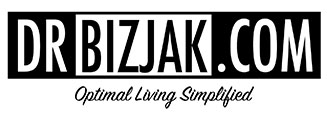The way we see the world and the way we look at the things around us are shaped by our beliefs, experiences, and philosophies. We often look at things in terms of being cold or hot, black or white, fast or slow, etc. Most of the what we see and identify with is very objective and tangible, and therefore, most of us can agree on what it is we see or feel. If you and I both put our hands into a bucket of water, we’d likely agree as to whether it is hot or cold. If we see a car cruising down the road, we’d likely agree as to whether it is going fast or slow. And if we looked at a piece of furniture, we’d likely agree as to whether it is dark or light in color.
It gets a bit more delicate when it comes to determining whether something is bad or if it’s good. While there are many things that almost all would say are good (a child being rescued from a burning building), or almost all would say are bad (that same child perishing in the fire), labeling something as either good or bad varies greatly depending on who is making that judgement. It was William Shakespeare’s Hamlet that stated, “There is nothing either good or bad, but thinking makes it so.”
Is the rain bad? It depends on who you ask. The person heading out to an amusement park will surely curse the rain. Yet the farmer, whose crops depend on the rain, will welcome it with open arms.
Is money bad or good? In the hands of an evil person, money can be used to harm large groups of people. Therefore, it is bad. However, money can also be used to feed the hungry and give shelter to the homeless.
How about cholesterol? We constantly hear about how bad cholesterol is and its contribution to heart disease. We know there are multiple forms of cholesterol, with HDL cholesterol being hailed as the “good cholesterol,” and the LDL being known as the “bad cholesterol.” While LDL cholesterol has been implicated as the bad guy in terms of heart disease, it plays a critical role in hormone production and helps to protects your nerves. Too little LDL cholesterol puts you at risk of hopelessness, nervousness, confusion, agitation, difficulty making a decision, and changes in your mood, sleep, or eating patterns.
Even emotions get labeled as either good or bad. Happiness is good; sadness is bad. Frustration is bad; contentment is good.
I think it is important to recognize that without the bad, we would not recognize the good. I wouldn’t go as far as to say we should wish for the bad so that we gain greater appreciation for the good, but to understand that it exists, will always exist, and does help shape our perceptions of what is good, might help us gain more tolerance for the bad in our lives. Author Jay Crownover has said, “There was no good without the bad, no joy without sorrow, no peace without war, and there definitely couldn’t be love without the sour taste of hate. You had to know what one felt like to fully experience and appreciate the other.”
And while two people may view the same thing or event quite differently (such as rain as it is viewed by the farmer and the person going to the amusement park), good and bad can fluctuate within your own mind from day to day. That rain could be bad on the day you are having an outdoor party, yet be good that day that you plant your new shrubs.
Watching an antelope being brought down by a lion can elicit many emotions. But perception will dictate what you feel. I remember feeling sadness, knowing this is bad for that antelope, as its life comes to an end. Then watching a documentary about lions, and seeing the starving cubs, I caught myself rooting for the lion as it chased down the antelope. It all comes down to perception. And I often think of the quote, “Nature is neither kind nor cruel, but utterly indifferent to all suffering.”
With all the bad around us, we need to know there is an equal amount (or more) of good. Most of what we think and feel comes down to perception, and we can improve how we perceive the world around us. It has been said that ignorance is bliss. The opposite of bliss is misery. Therefore, we might not experience any bliss at all if it weren’t for the misery.
How many things in your life that appeared bad at first (such as a job loss, a breakup, or even a wrong turn in your car) turned out to be incredibly good (getting a much better job, ending up in a much more fulfilling relationship, or avoiding a bad accident)?
Honoring all emotions is critical, we just have to avoid getting stuck in the bad ones. Seeing and recognizing the bad in our lives is essential, but we must focus on the good. And being careful when labeling things as either good or bad will impact how we experience life.







